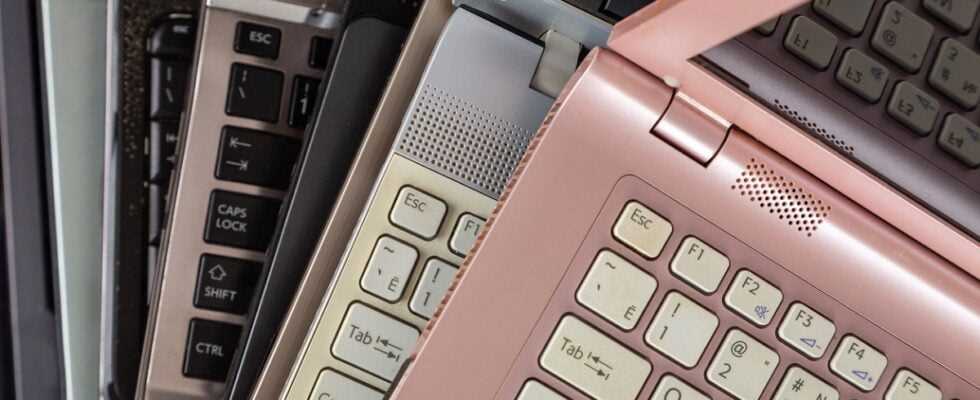In recent years, PC sales have gradually declined for the obvious reason that with the arrival of smartphones and tablets, the universal approach offered by the PC no longer seemed so relevant, especially for the general public. However, the situation has changed with the pandemic, as many people have quickly realized that while tablets and smartphones are useful for watching videos or sending a few messages, they are much less useful for working or learning for long periods of time.
The good old combination of a screen and a keyboard remains for the time being simply more efficient for creative tasks than a screen alone. Bottom line: PC sales saw their strongest growth in 10 years, with PC sales up 14% to over 300 million units sold this year.
Part of the growth was because businesses bought laptops to replace fleets of PCs locked away in closed offices due to lockdown, but also because families bought devices for entertainment and relaxation. educate during periods of confinement.
Return to form
By 2023, 130 million more PCs will be sold, compared to forecasts a few years ago. And if not for the supply chain issues plaguing the entire tech industry, PC makers would likely have sold even more. For Panos Panay, from Microsoft, it is indeed a “new era of the PC” which is opening up for the sector. “A new hybrid infrastructure now exists – across work, school and life – allowing greater flexibility in where and how people spend their time. And the PC is the pivot”, points out the latter.
“Windows now powers more than 1.4 billion monthly active devices, and overall time spent on Windows has increased 10% from pre-pandemic levels. This quarter, Windows gained market share as, through our customer research, we saw an almost 50% increase in the number of people who plan to use their PCs for creative pursuits, games, or to work. We continue to see people in organizations, schools and homes recognize the benefits of a PC for everyone, “said the Windows + product manager at the Redmond firm.
It is possible to prove him right, but to a certain extent. What is certain is that future technologies that some thought would be useful during the pandemic and lockdowns – such as virtual reality and augmented reality – have had little or no impact. The PC, on the other hand, won all the votes, although it took the rapid evolution of decent collaboration tools like Zoom and Microsoft Teams to help us get our work done.
Getting back to normal could hurt
The fact remains that there are now tens of millions more PCs in homes than there would have been otherwise. “Windows will continue to be the backbone of innovation, a destination for games, creative pursuits, and exploration, and a gateway to the metaverse,” Panos Panay said.
But will these new laptops and PCs just start to gather dust when we get back to normal? Maybe so, because the freedom to travel frees us from our home offices and allows us to roam again. Maybe not, as telecommuting and distance learning continue to be part of the new hybrid world.
Surely the days when the PC was our only technological choice, or even our primary device, are long gone. But perhaps the unexpected return of the PC reminds us that our use of technology can be more than passive. It’s a reminder that we can use technology to create, and not just as a way to absorb whatever is delivered to us on those tiny screens.
Source: ZDNet.com
